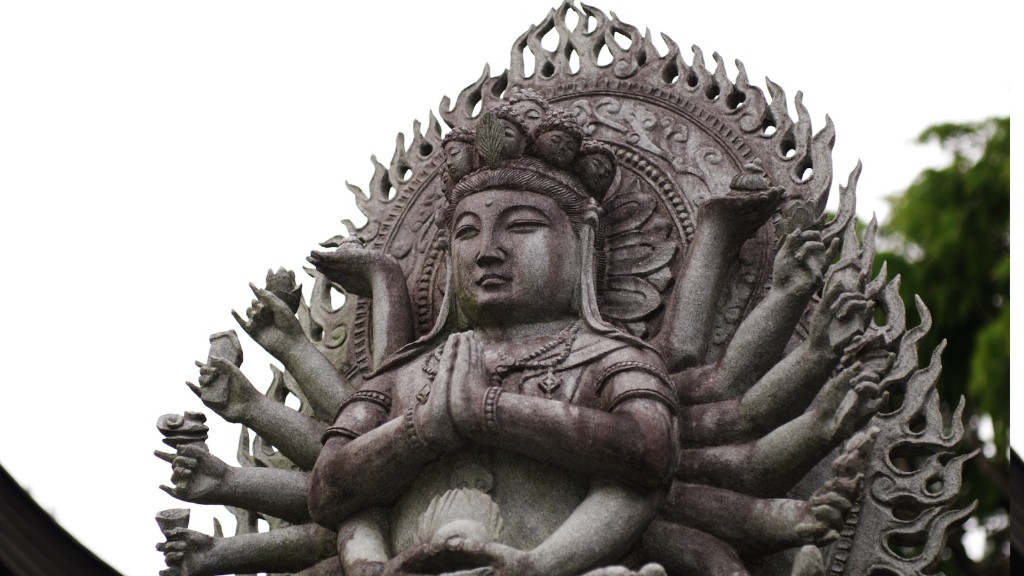What Is Circumcision In Judaism
Circumcision is a traditional religious practice of removing the foreskin of the penis found in Judaism. It is also a common practice in Christianity and Islam, but it has its origins in Judaism. The practice is said to have originated in the Torah, which is the first five books of the Old Testament in the Bible. It is said to have been passed down from one generation to the next, from Abraham. The primary purpose of circumcision is to symbolize a covenant between the Jewish people and God. It is thought to be an outward sign of being part of God’s chosen people.
In Judaism, circumcision is done on male babies when they are 8 days old. This is known as the bris ceremony, and it is typically done in the synagogue. The ritual is done by a certified Mohel, who is specially trained in the procedure. The baby is laid in the lap of the Mohel, and the foreskin is rapidly pulled off, causing it to tear and open a wound. The wound is then staunched using wine or blood. Following the procedure, the baby is given a drop of wine mixed with sugar or a drop of honey as a reward or offering of sweetness.
Though not all Jews practice circumcision, the practice is still largely observed in the Jewish community. The physical markings of circumcision are seen as a way to reinforce Jewish identity, and it is considered a sign of true religiosity and faithfulness to God. It is also thought to promote the practice of leading a healthy and moral life. Studies suggest that circumcision also plays a role in reducing the spread of diseases in the population.
Some argue that circumcision is a controversial practice due to the potential risks associated with it.The most common risk is pain and bleeding, but other, rarer risks include infection, spreading of infection, excessive bleeding, and in extremely rare cases, death. Other risks may include psychological trauma and post-circumcision syndrome. While many of these risks can be avoided with proper medical attention and sterile procedures, some argue that the risks of circumcision outweigh any potential benefits.
Scientific studies have provided evidence that the practice of circumcision may bring health benefits, including a reduced risk of HIV or other sexually transmitted infections, and decreased risk of penile cancer. In addition, some argue that the practice has emotional and spiritual benefits for those who choose to observe it. For many, the bris ceremony is an event that is meaningful and special, with lasting emotional and spiritual effects.
Different Jewish denominations interpret the practice of circumcision in different ways. In Reform Judaism, for example, families can decide whether or not they wish to observe the practice. For Conservative Judaism, circumcision is still generally viewed as a traditional practice, although some families allow their sons to make the decision when they are older.
Rabbis who perform the bris ceremony often have a special relationship with the baby’s family, and spend time talking and praying with them during the ceremony. They often present the baby and his family with special symbolic items during the ceremony, such as a hat, a ring, or a white robe, and may recite blessings in Hebrew. The ceremony typically marks the official entry of the newborn into the Jewish community, and is seen as a celebration of life.
Benefits Of Circumcision
The practice of circumcision is seen by many as a way to stand out as a unique group of people, and to acquire physical, spiritual, and emotional benefits. Many studies indicate that circumcised men are actually more infertile than uncircumcised men, although it is difficult to be certain of exactly how much of a difference this makes. In addition, there may be other physical benefits associated with circumcision, such as a reduced risk of certain types of cancer and STDs.
Generally speaking, circumcised men have fewer urinary tract infections than uncircumcised men. It is believed that this is due to the fact that the foreskin can act as a breeding ground for bacteria which can cause infections. In addition, some studies suggest that circumcision may also reduce the risk of prostate cancer. There is no definitive proof, however, and more research is needed to understand the potential link between circumcision and this particular type of cancer.
There may also be psychological and emotional benefits associated with circumcision. For some, circumcision can have a positive effect on their self-esteem and can be seen as a way to express an outward identity. For others, circumcision can be seen as a sign of inner strength and courage, especially if it is done later in life. Studies have shown that circumcision can reduce levels of anxiety and depression, and can improve overall psychological wellbeing.
Circumcision is often seen as a central aspect of Jewish life, and there are some benefits that come with participating in the practice. For some, the ritual of circumcision can be a meaningful and even spiritual event, and the ceremony itself can be seen as a way to connect with their heritage. Circumcision can also be seen as an outward sign of faith, an indicator of being part of the covenant between God and the people of Israel.
PhsychologicalFeelings
While there are purported benefits associated with circumcision, there are also potential risks and challenges. The most immediate and notable is the physical pain that can come with the procedure itself. The baby may experience a brief burst of intense pain as the foreskin is removed, and the pain may linger for up to a few days afterwards. Parents should be mindful of this, and make sure to provide comfort and support for the baby after the procedure.
Beyond the physical pain, there may also be psychological challenges associated with circumcision. Some view the practice as a traumatic experience, with potential long-term emotional consequences. It is important for parents to be aware of this, and to provide psychological support for the baby if it is needed. This could include talking about the procedure before it takes place, and providing reassurance and comfort afterwards.
Recent changes in parental and societal attitudes towards circumcision has led some to be doubtful of the procedure itself, particularly in the more liberal parts of the Jewish community. Some parents may choose not to circumcise their sons based on moral, ethical, or political beliefs, while others may decide to postpone the procedure until the boy is old enough to make his own decision. It is important to be aware of the legal, logistical, and psychological implications of circumcision, and to make an informed decision.
Debates regarding circumcision are likely to persist, and there is no single ‘right’ or ‘wrong’ approach. Ultimately, any decision families make should be based on personal preference and conviction, weighing up the pros and cons of the procedure. Some may view circumcision as a meaningful ritual and an important part of Jewish identity, while others may opt out of it. Ultimately, it is up to each individual family to decide.
HealthIssues
Regardless of how parents decide to approach the issue of circumcision, it is important to be aware of the potential health problems associated with it. As with any medical procedure, there are potential risks and benefits associated with circumcision, and parents should weigh these carefully when making a decision. Although rare, some of the possible risks include infection, excessive bleeding, or discomfort and pain at the site of the wound. It is important to use sterile medical equipment and a certified professional to perform the procedure, in order to reduce the risk of these complications.
More common, however, is the risk of psychological distress associated with circumcision. As with any medical procedure, parents should be aware that there may be potential long-term effects on the baby. This could include feeling embarrassed or ashamed about the circumcision, feeling violated or traumatized by the procedure, or developing an irrational fear of the medical profession.
The Centers for Disease Control and Prevention provides detailed advice for parents who are considering the procedure, and recommends that any decision to circumcise should be made in consultation with a healthcare professional. It is important to note that the procedure is not recommended or discouraged by the CDC, and any decision should be made solely on the basis of the specific needs and preferences of the individual family.
InterfaithPerspective
The debate around circumcision is often rooted in a particular religious or cultural perspective. For families within or across different faith traditions, the conversation can be an important opportunity to discuss different attitudes and beliefs, and to make an informed decision as to what is right for the baby and the family. It can be particularly helpful for parents to talk to their religious and cultural leaders, as well as their healthcare providers, in order to get a more complete understanding of the potential risks and benefits associated with the procedure.
In the United States, the majority of newborn males are circumcised on the basis of religious or cultural norms. However, there is a growing trend of families opting out of the procedure due to medical, ethical, or moral concerns. For some families, the procedure is important for religious reasons, and is seen as an integral part of their identity. And for others, the decision not to circumcise is also rooted in religious and cultural beliefs. Ultimately, it is important for parents to look at the evidence, weigh the risks and benefits, and make an informed decision that is right for the baby and the family.
PublicDiscourse
The debate around circumcision is ongoing, with different perspectives and opinions. It is particularly important for parents to seek out reliable and up-to-date information in order to make sure they are making an informed decision. The CDC provides a range of information and resources, and can be a good starting point for any parent considering the procedure. Other sources of reliable information may include religious and cultural leaders, healthcare providers, and public health officials. It is also important for parents to be aware of the potential risks associated with circumcision and to make sure that the procedure is performed safely and professionally.
The debate around circumcision is also often a public one, and can be an opportunity to discuss different social and cultural values. Circumcision can be seen as an important part of some cultures and religions, but it is important to remember that the decision should remain with the parents and the family. It can be a difficult and emotional decision to make, so it is important that parents are aware of the possible implications of the procedure, and that any decision is made on the best interests of the baby.
Circumcision is an ancient tradition that has been practiced in some form since at least the Ancient Egyptians. How, why, and when it is practiced varies from culture to culture and religion to religion. It is important that individuals and families familiarize themselves with the different perspectives and opinions, and make any decision to circumcise based on the best interests of the baby and the family. Ultimately, any decision should be made with careful reflection and consideration.





